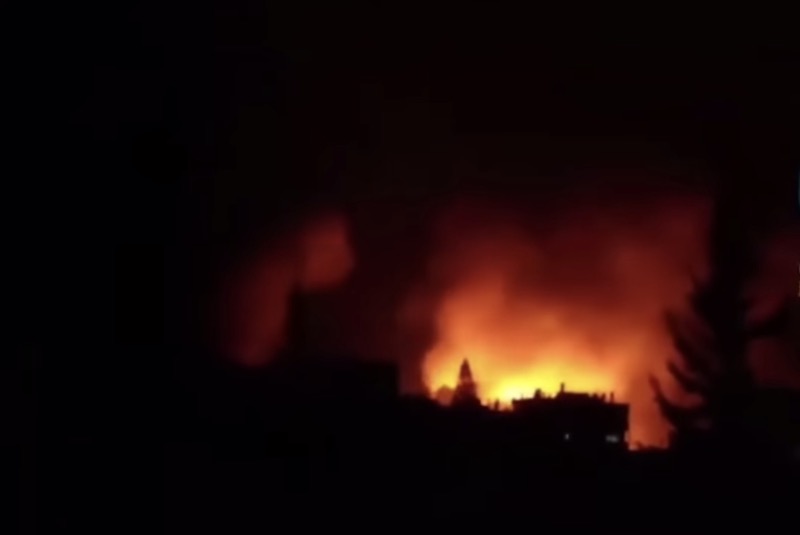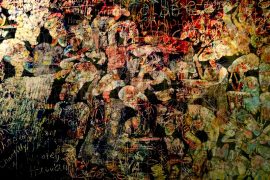At the end of the carnage that was World War I, Woodrow Wilson tried to persuade the French Government not to punish Germany harshly. He failed, and the result was the rise of Hitler and World War II.
After the World War II, the US foreign policy was to end the cycle of violence. General Eisenhower was a brilliant soldier, but he did not love war. He didn’t see war as a solution. The Americans took charge of the peace. They didn’t punish Germany but instituted the Marshall Plan and, with the help of its allies, created democratic institutions in Germany. The result was peace in Western Europe.
There are plenty of examples everywhere in the world where violence begets violence. In 1641, Irish rebels massacred Protestant settlers in Portadown. Cromwell and his allies used it as justification for an even bigger massacre of the Catholic population. And so the cycle of violence went on and on. The effects are still felt in Northern Irish society.
It is not possible to understand Irish history without understanding the effects of colonialism. The final straw came with the Potato Famine when the Irish population was decimated. The colonial Government began by setting up soup kitchens and work schemes but withdrew funding. To escape death by starvation, a million Irish emigrated to the USA. From there, they began to campaign for Irish independence.
The Jewish people have suffered unimaginable horrors as a result of racism and anti-Semitism. Despite that awareness, some of its leaders are labelling Palestinians as ‘human animals.’ European Jews understand what concentration camps and ghettos are, but on their doorstep, Israel has created a concentration camp–Gaza. They are angered by the violence wrought upon them by the vicious Hamas attacks. Surely, no one understands better what starvation in a ghetto means than Jewish people who have lived through the Warsaw Ghetto?
Is that really what the Israeli Government intends to do in Gaza by cutting off food, water and fuel supplies? Understandably, they want to destroy Hamas, but they are actually killing the people of Gaza. Hamas will survive and want revenge. One of the masterminds behind the Hamas attack lost an eye, a hand, a leg, a wife and an infant during a previous Israeli bombing of Gaza. How many more scarred orphans will, like him, join Hamas after experiencing the destruction of their homes and families?
As in the past in Ireland, the Palestinians are angered by decades of what has, in effect, been an unjustifiable occupation and apartheid. They rebel, and their rebellion is put down by even worse violence, just as was the case with Cromwell following the Portadown massacre, which was similar to the Hamas attack. Cromwell’s response did not bring peace; hatred and hatred have never done any good anywhere in the world. It is easy to despair. It feels like WB Yeats’ poem, Second Coming:
Turning and turning in the widening gyre
The falcon cannot hear the falconer;
Things fall apart; the centre cannot hold;
Mere anarchy is loosed upon the world,
The blood-dimmed tide is loosed, and everywhere
The ceremony of innocence is drowned;
The best lack all conviction, while the worst
Are full of passionate intensity.Surely some revelation is at hand;
Surely the Second Coming is at hand.
The Second Coming! Hardly are those words out
When a vast image out of Spiritus Mundi
Troubles my sight: somewhere in sands of the desert
A shape with lion body and the head of a man,
A gaze blank and pitiless as the sun,
Is moving its slow thighs, while all about it
Reel shadows of the indignant desert birds.
The darkness drops again; but now I know
That twenty centuries of stony sleep
Were vexed to nightmare by a rocking cradle,
And what rough beast, its hour come round at last,
Slouches towards Bethlehem to be born?”
We need hope, not naïve hope, but hope based on experience. Rays of light penetrate the darkness – leaders who turn from war to reconciliation. A good example is the one of the Indian emperor, Asoka(304 BCE – 232 BCE). A warlord, his prisons were vile places where torture was common. After a battle, he walked among the dead and injured, genuinely repented.
Is that what is needed today? Do our leaders need to go to Gaza and experience it first-hand?
I recall marching with 100,000 others to Hyde Park to celebrate Nelson Mandela’s birthday while he was still held in prison. A democratic South Africa felt like an impossible dream. When he was released, I could not even imagine a man who, having been imprisoned for twenty-seven years, many of them spent breaking rocks on Robben Island, could forgive his oppressors. It felt like a miracle when Mandela and Archbishop Tutu taught us that holding on to hate destroys oneself.
From my reading of world history, Israel can only live in security when the Palestinians are free. Occupying their land creates resentment and hatred. Can’t Israel’s friends ask them to take the advice of a fellow Jew who taught us that we should love our enemy and do good to those who hate us? Only acts of compassion like the Marshall Plan can create peace.
An eye for an eye will make the whole world blind. War will only decimate us all.
-30-
Copyright©Madras Courier, All Rights Reserved. You may share using our article tools. Please don't cut articles from madrascourier.com and redistribute by email, post to the web, mobile phone or social media.Please send in your feed back and comments to editor@madrascourier.com











